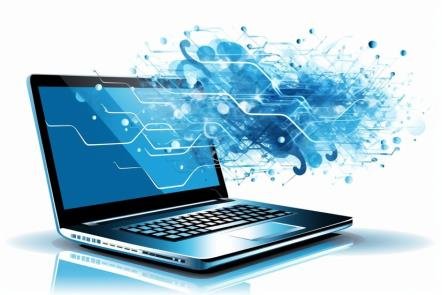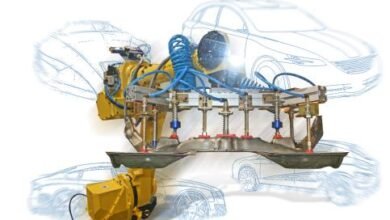Laptop Computer Technology: The Evolution and Impact of Laptop Technology

The concept of portable computing has been a transformative force in the technology landscape, and the evolution of laptops stands at the center of this revolution. From the bulky and inefficient machines of the early 1980s to the sleek, powerful devices we use today, laptops have undergone a significant transformation. This article delves into the development of laptop technology, its impact on various aspects of modern life, and a glimpse into the future of these indispensable devices Laptop Computer Technology.
The Genesis and Evolution of Laptop Technology
The first laptops, introduced in the early 1980s, were far from what we would consider portable today. The Osborne 1, regarded as the first true portable computer, weighed about 24 pounds and had a tiny 5-inch screen. Other models, such as the Compaq Portable, followed it, laying the groundwork for future developments.
Key Technological Advancements
Over the years, several key technological advancements have driven the evolution of laptops. The introduction of lithium-ion batteries, LED screens, solid-state drives (SSD), and more efficient, faster processors have all contributed to the development of lighter, faster, and more powerful laptops. Each innovation not only improved performance but also enhanced the user experience by extending battery life and enabling thinner designs Laptop Computer Technology.
The Impact of Laptops on Society
Laptops have had a profound impact on how we work, learn, and entertain ourselves. Their portability and increasing power have made them indispensable tools for professionals, students, and consumers alike.
Work and productivity
The flexibility to work from anywhere has fundamentally changed the dynamics of the workplace. Laptops largely facilitate remote work, which became particularly significant during the COVID-19 pandemic. They allow for a mobile office, complete with all the tools one might need, from software for video conferencing to project management Laptop Computer Technology.
Education and learning
In education, laptops have become just as important. They provide students access to information, educational resources, and platforms for remote learning. Programs that provide students with laptops have demonstrated improved learning outcomes because they facilitate greater access to information and enable new, interactive methods of instruction.
Entertainment and media consumption
Laptops have also transformed how we consume media. People increasingly access streaming services, gaming, and social media through personal devices like laptops, which provide the convenience of mobility. This shift has implications for the media industry, influencing everything from the design of digital media to the economics of streaming services Laptop Computer Technology.
Challenges and Considerations
Despite their numerous benefits, the widespread use of laptops presents several challenges Laptop Computer Technology.
Environmental Impact
The environmental impact of manufacturing, using, and disposing of laptops is significant. The production of laptops involves resource-intensive processes, and their short life cycles can lead to considerable electronic waste. Manufacturers and consumers alike are becoming more aware of these issues, leading to greater interest in sustainable practices, including recycling and the development of more durable devices.
Security Concerns
Security is another major concern with laptops. Their portability makes them vulnerable to physical theft, and their connectivity to the internet exposes them to cyber threats. Encryption, biometric security features, and robust anti-virus software have become standard in addressing these issues Laptop Computer Technology.
The future of laptops
As we look to the future, the laptop industry continues to innovate. We expect emerging technologies like AI and cloud computing to significantly influence the next generation of laptops. AI could lead to smarter, more responsive devices, while cloud computing might shift some of the processing power from the device to the cloud, enabling even lighter and thinner laptops.
Potential Innovations
Future laptops might also feature more advanced integration with other devices and technologies, such as virtual and augmented reality. The integration of 5G technology promises higher speeds and more reliable connections, which could further enhance the capabilities of mobile computing Laptop Computer Technology.
Conclusion
The journey with laptop technology is far from over. As technological advancements continue at a rapid pace, the face of mobile computing will likely look vastly different in the next few decades. What remains constant, however, is the role of laptops in pushing the boundaries of what is possible in our work, education, and personal lives. As we continue to innovate and adapt, the potential of laptop technology is limitless, promising exciting developments in the years to come Laptop Computer Technology.



